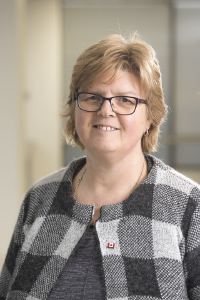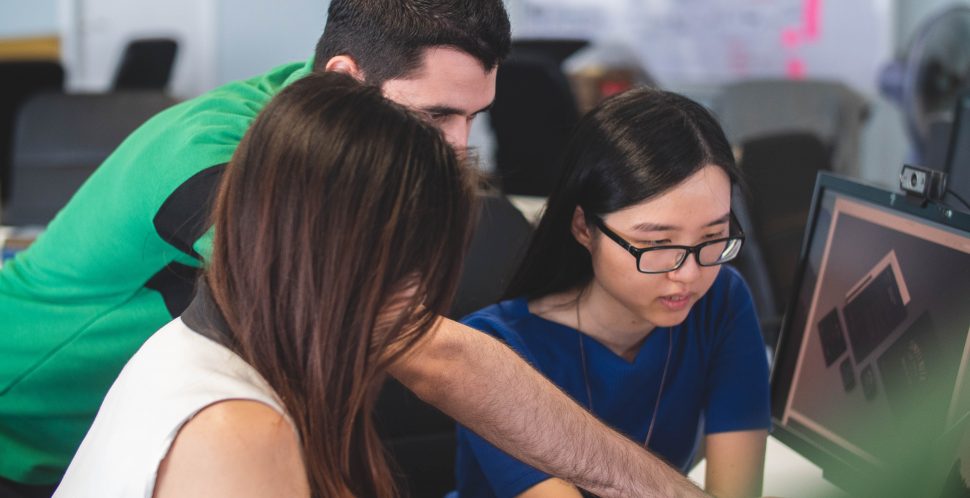Vancouver has seen a groundswell in startup businesses – in 2017, Startup Genome named the city as the top-ranked startup ecosystem in Canada and 15th strongest in the world. Despite this recognition and success, Vancouver, like the rest of Canada and many global tech hubs, continues to struggle with closing the capital-raising gender gap for women entrepreneurs.
This is especially true of women founders in the tech industry, whose companies receive disproportionately less funding than male-led startups. According to PayPal Canada’s Women’s Entrepreneurship Study, 47 percent of women-owned businesses leveraging e-commerce have trouble securing the external investment they need to scale. Since only 5 percent of Canadian tech companies have a solo female founder, it’s not a big leap to conclude that the number of women-owned tech startups able to easily find and secure funding is far smaller than it should be.
Research & Startups Agree: “Arduously Tough for Women in Tech Founders”
It is a conclusion Lee Brighton, Chief Strategy Officer and Co-Founder of Virtro Entertainment, came to long ago. Virtro Entertainment is led by an experienced female leadership team that is developing a groundbreaking VR & AI solution for language learning.

Virtro Entertainment makes experiences in VR while championing diversity with every 360° turn
“It’s arduously tough for ‘women in tech’ founders, according to TechCrunch, female-founders’ share of the funding pie has decreased from 4% in 2016 to 2.2% in 2017,” says Brighton, “and this number reflects those who actually got funding – not those that were ignored or turned down. During the same period, there has been a steady growth in funding for mixed-gender companies.”
Over the past five years, several Canadian reports on the gender gap in capital-raising have been released; it is now well-known in the business community that Canadian women founders experience certain investment hurdles more frequently than their male peers. According to the Startup Genome Global Startup Ecosystem Report 2018, Canadian women founders tend to be less connected to potential investors despite being more connected to other founders. The significance of this cannot be understated as founders with higher levels of connectedness typically have higher revenues and employment growth.
In addition to the overall systemic bias women founders experience during their fund-raising journeys, these founders, along with other diverse founders of Canada, often struggle to find comprehensive support and mentorship programs that walk them through the capital-raising process.
Absence of Female Representation Venture Firms Deepens Challenge
The problem worsens when considering the lack of representation in venture capital firms and angel investment groups. According to the Women in Venture report, female Canadian VC partners clock in at 14 percent – a dismal number, despite being double America’s. Similarly, only 14 percent of overall members in angel groups are women. This is problematic for many reasons, and especially so because venture firms are twice as likely to invest in women-led startups if the venture team has at least one female partner.
“We are frequently told by senior government and business leaders to bring on a male founder so that we can increase our chances of getting funded [through both angel investors and government grants],” said Brighton. “If we are ever going to change this story, then we need these leaders to work with us to change the narrative from one of exclusion to one of prosperity in diversity. This support will directly impact investors’ decision to reconsider investing in female-founded companies and further encourage women to enter the tech space.”
The message is clear: Vancouver needs to do better. We must provide more opportunities for diverse entrepreneurs and growth-stage founders to gain access to critical capital-raising knowledge, and connect with diverse investors and founders in the city. This alone will not solve the systemic gender bias experienced when raising capital. However, providing women founders with access to training and mentorship – and connecting them to diverse and well-informed investors – is an obvious and necessary step in the right direction.
Resource: Discovery Foundation Capital Mentorship Program
The Startup Genome report concludes with a call for further research to address the reason behind the gender discrepancy for investor relationships and further understand what programs and policies could arise to address this gap.

Lunapads is a global brand leader in sustainable personal hygiene and menstrual products
In the past, the Vancouver Economic Commission (VEC) has addressed concerns for startup education through programs like the Discovery Foundation Capital Mentorship Program. In response to increasing demand for community building, VEC decided to adapt the popular Capital Mentorship Programs to offer different focuses for cohorts, including VR/AR, Health & Life Sciences and Women in Tech. Because of these new industry-specific intakes, cohorts can find commonalities with their business peers, make lasting connections and learn from across the table, along with gaining critical capital-raising strategies from experts who have raised multi-million rounds.
The Women in Tech cohort emerged in response to this significant diversity gap in basic training and investment know-how. The program is also designed to help entrepreneurs become more strategic in raising the capital critical to accelerating their ventures.
“The Capital Mentorship Program for Women in Tech was an ideal forum to bring women founders together and go deeper on the fundamentals to successfully raise capital,” said Suzanne Siemens, Co-Founder and CEO of Lunapads, a women-owned social enterprise in Vancouver that manufactures washable cloth menstrual pads and underwear. “In addition to the experts in the room, being around peers and hearing fundraising stories from other women founders created a great learning environment. The VEC and Spring team made sure everyone felt included and supported, wherever they might be on their fund-raising journey.”
While feedback on the program has been excellent so far, our focus remains unchanged. We, and our partners working in this space, must strengthen these kinds of programs even further and tailor their contents to meet the specific needs of diverse founders. We must provide women founders significantly more opportunities to gain access to capital-raising knowledge, build a representative founder community, and engage in meaningful mentorship if we are to build a diverse, resilient, and smart economy.
We look forward to offering more Women in Tech cohorts in the future and tackling this critical issue together as a community.
Learn More
For more information on the Discovery Foundation Capital Mentorship Program:
![]() Sign up for the Vancouver Economic Commission newsletter to keep informed on upcoming applications.
Sign up for the Vancouver Economic Commission newsletter to keep informed on upcoming applications.
![]() For more information on the Capital Mentorship Program, check out our website.
For more information on the Capital Mentorship Program, check out our website.
Thanks to Lee Brighton (CSO & Co-Founder, Virtro Entertainment) and Suzanne Siemens (CEO & Co-Founder, Lunapads) for contributing to this post.



